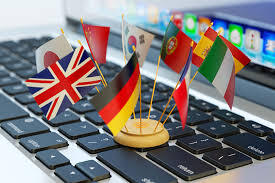In today’s globalized world, knowing languages is very important. German is one of the most popular languages. It plays a key role in education, business, law, and tourism. Professional translations into German are essential for reaching a German-speaking audience. They also help in building partnerships with German-speaking countries. In this article, we will explore the key aspects of professional translation into German. Moreover, we will discuss the challenges faced by translators.
Key Features of Professional Translations into German

Accuracy and Consistency with the Original
A good German translation must be precise. It should convey the meaning of the original text correctly. Additionally, it should keep the same style and tone. This is especially important in specialized translations, like medical or legal documents. Using the right terms is crucial to avoid misunderstandings. Furthermore, errors in such translations can lead to serious problems.
Grammatical Accuracy and Style
German has complex grammar and sentence structures. A professional translator ensures that the text is clear. They also make sure it follows German language rules. Besides, they must capture the style and tone of the text to make it sound natural. Consequently, the translation feels professional and authentic to German readers. As a result, it is easier for readers to understand and engage with the content.
Context Awareness
German is closely tied to the culture of the countries where it’s spoken. A translator should understand both language rules and cultural context. This is important when translating idioms, which can have different meanings in Austria, Germany, or Switzerland. Therefore, a good translator adapts the text to fit a specific region. As a result, they avoid misunderstandings and maintain professionalism.
Terminological Consistency
In fields like medicine or law, using consistent terms is vital. Professional translators use tools to ensure consistency across the text. This makes translations more accurate and follows industry standards. Hence, the final product is more reliable and professional. Additionally, this consistency helps in maintaining a high level of quality throughout the translation.
Fields Where German Translations Are Essential
German is important in many areas:
Law and Administration – Translating legal documents.
International Trade and Business – Translating business agreements and presentations.
Education and Science – Translating research papers and textbooks.
Culture and Arts – Translating literature and films.
Marketing and Advertising – Translating product descriptions.
In all these areas, good German translations are crucial for success. Thus, investing in quality translations can open many opportunities. Moreover, it helps companies expand their reach into German-speaking markets.
What Makes a High-Quality German Translation?
A good translation must:
Be faithful to the original text.
Have a natural flow.
Be stylistically and grammatically correct.
Consider cultural differences.
Use the right vocabulary.
A professional translator pays attention to sentence structure and word order. In German, verbs often come at the end of sentences, which can be tricky for non-native speakers. Therefore, experienced translators are essential for producing high-quality work. Additionally, they ensure that the translation sounds natural and authentic.
Using professional translation services ensures accuracy and faithfulness to the original text. Many agencies follow a multi-step proofreading process to minimize errors. Self-translations can lead to misunderstandings and look unprofessional. Hiring pros helps avoid these issues and reduces stress. Furthermore, professional translators work efficiently, saving time and resources.
Many agencies work with native speakers to ensure translations sound natural. Native speakers can identify cultural nuances and suggest better expressions. Consequently, the final translation feels authentic and resonates with the target audience. Moreover, this collaboration enhances the overall quality of the translation.
Conclusion
In today’s globalized world, professional German translations are essential for effective communication. Precision, consistency, and grammatical accuracy are key to high-quality translations. Investing in professional German translations can bring significant benefits. It can also strengthen a company’s position in international markets. Therefore, choosing the right translation service is crucial for success in German-speaking markets. Additionally, using professional translators ensures that your message is conveyed clearly and effectively, which is vital for building strong business relationships.



